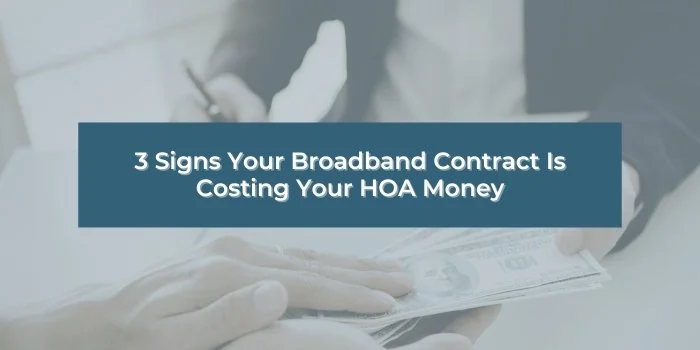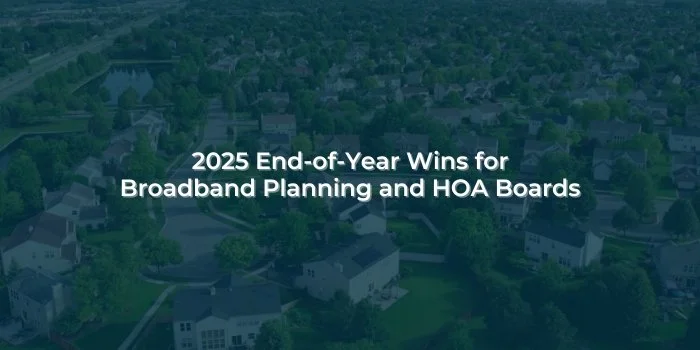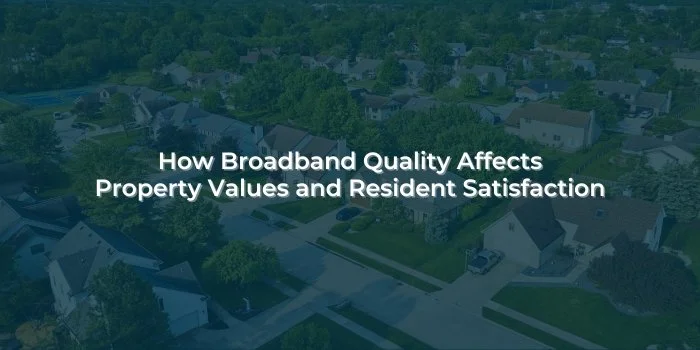Many homeowner associations and condo boards manage broadband contracts without realizing how much revenue they could be earning. When Right of Entry Agreements are outdated or incomplete, communities miss out on funds that could offset expenses, fund projects, and strengthen long-term financial stability. Broadband Planning helps boards harness the collective buying power of communities to identify overlooked revenue streams and negotiate agreements that create consistent income while protecting resident choice.
If your board is exploring ways to improve your community’s budget, this post explains three signs your broadband contract may be costing your HOA money, and how you can reclaim revenue.
Sign 1: Your Right of Entry Agreement is Missing Compensation
Many Right of Entry Agreements do not maximize the revenue that is available to the community. These agreements allow providers to access community common elements in a controlled, board-approved manner while keeping resident choice fully intact. When negotiated properly, boards can maximize community revenue with a Right of Entry Agreement, securing income without impacting service or homeowner decisions.
HOA boards often overlook Right of Entry Agreements, which are contracts that allow broadband providers to access community commons elements in exchange for compensation. The providers' wires are already in the community, and boards do not know they have to assert their rights to get access to this compensation. Broadband Planning has helped boards across the country uncover thousands of dollars in Right of Entry revenue, demonstrating exactly how HOA boards can solve budget gaps without raising dues.
Sign 2: No Revenue Share or Long-Term Compensation Terms
Even if a Right of Entry Agreement exists, many contracts fail to include revenue share or ongoing compensation from broadband providers. Without long-term income streams, boards miss opportunities to stabilize budgets over time.
In 2025, Broadband Planning helped 280 communities secure over $1.5 million in revenue share and upfront funding. These agreements give boards predictable, recurring income while preserving homeowner choice. They also help offset rising costs without increasing dues or special assessments.
Adding these terms requires strategic planning and expert negotiation, which is why boards partner with Broadband Planning to ensure their agreements reflect the true value of their community and generate sustainable revenue.
Sign 3: Your Contract Doesn’t Reflect Your Community’s Market Value
Many contracts undervalue the community because they rely on outdated assumptions about size, density, or provider interest. When agreements are negotiated without considering the collective buying power of the community, boards leave money on the table.
Broadband Planning works with homeowner associations and HOA boards to leverage market position, ensure agreements are current, and maximize revenue streams. By negotiating with all major providers and aligning agreements with board goals, they can secure compensation that funds community improvements like landscaping, capital reserves, road repairs, and pool upgrades.
Take Action Before You Leave Money on the Table
Boards that proactively review broadband contracts and negotiate strategically can unlock revenue streams that fund essential projects and maintain financial stability. By securing Right of Entry Agreements, addressing broadband frustrations that boards face, negotiating revenue share, accounting for ongoing broadband maintenance, and reflecting community value in every contract, boards strengthen finances without increasing homeowner dues.
Broadband Planning helps HOA and condominium boards uncover hidden value and create long-term financial stability. Contact us to review your broadband contract, maximize community revenue, and ensure your board is capturing every opportunity for sustainable funding.











